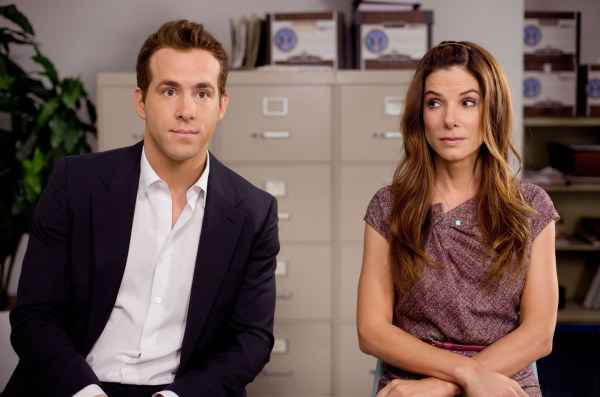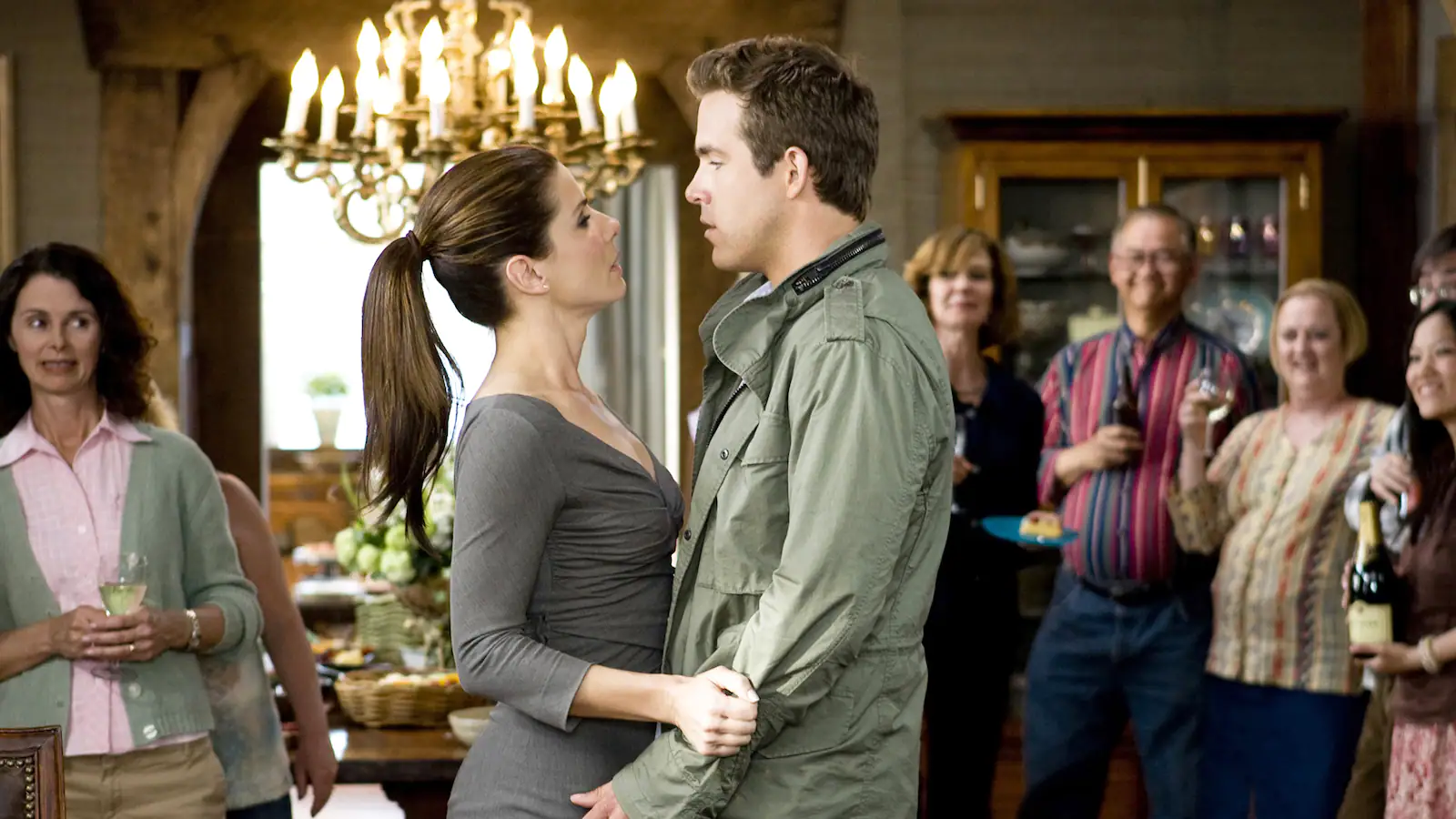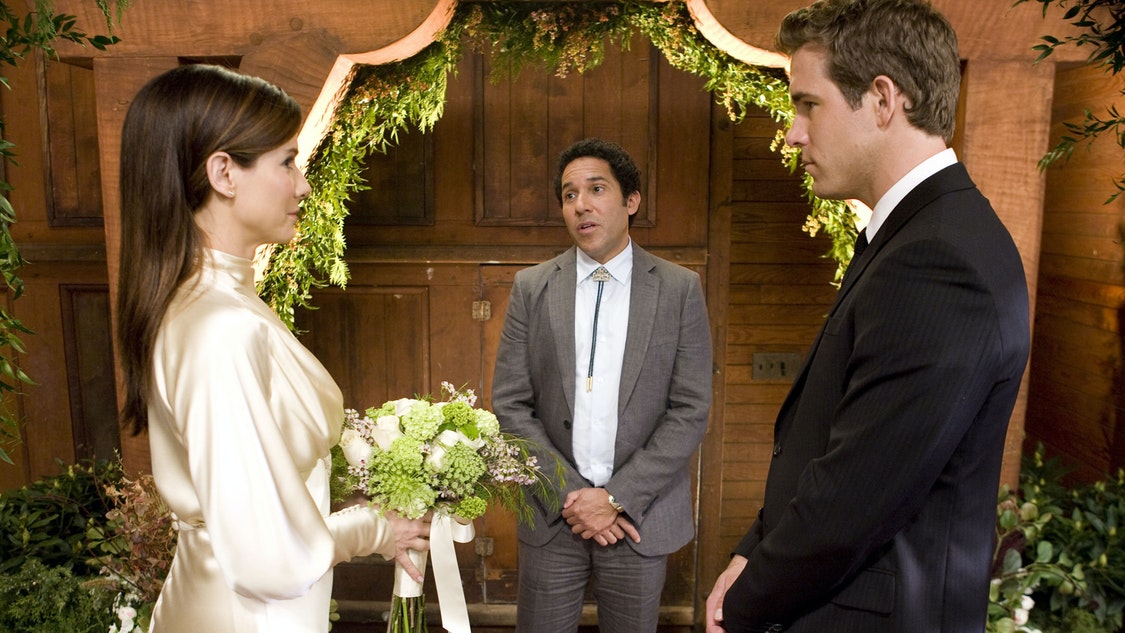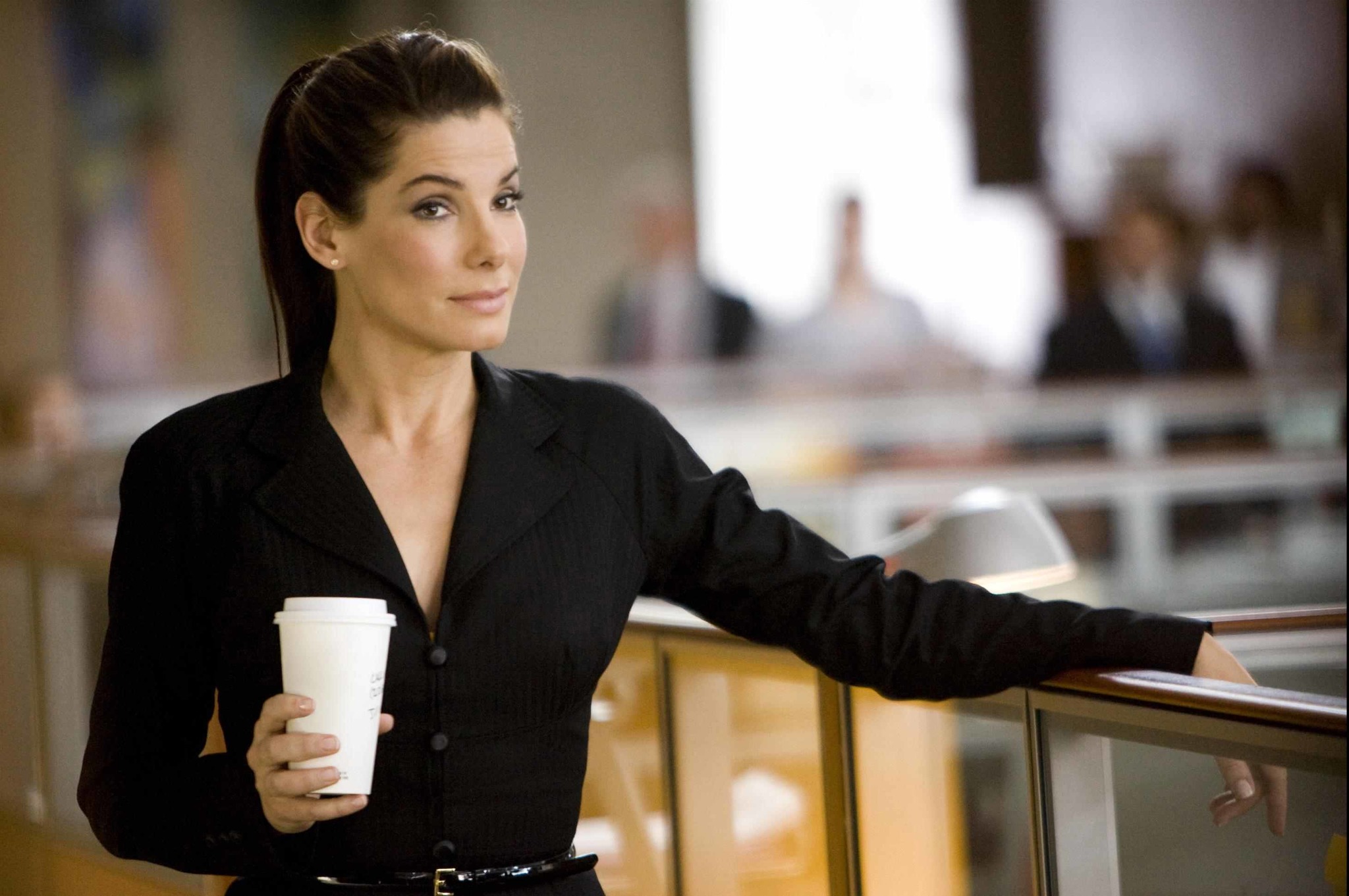Women in Romcoms: The Proposal (2009)

If you are tired of the usual proposal trope where the man goes down on one knee, then The Proposal (Anne Fletcher, 2009) is for you. Margaret, chief editor in a publishing firm in New York City, sees her visa denied. She forces her assistant Andrew to marry her and avoid deportation to Canada.
Margaret (Sandra Bullock) is a powerful women. When she is first introduced, she is on a call with a famous author who has not given a interview in twenty years convincing him to do Oprah. She is portrayed as bossy, ruthless which in romantic comedy (romcom) standards is supposed to be unflattering but it can be also seen as determination and very strong willpower. She knows what she wants and how to get it. She is a very empowering character.
Her male counterpart Andrew (Ryan Reynolds) also subverts the expectation of an assistant. He is not another corporate ladder climber. He cares about other areas of his life than his job. He cares about his family despite the sacrifices his job is asking of him.
He is also pushed by Margaret out of the expected masculinity norm. When she comes up with the story of their engagement, Andrew cut heart shaped confettis and waited for her kneeling and crying while Andrew tried to say he was "standing like a man".

He is also very quick to respond to Margaret despite his subordinate position. Although I wonder if the reason why he dares to stand up to her is because of his gender and the inability of the society to imagine a man who would obey a female boss.
In The Devil Wears Prada, Andrea, Miranda's assistant, does not do sarcasm or irony out of fear of being fired. She also never use names with her boss except for her friends. In The Proposal, when Andrew warns about Margret coming in he types "the witch is on her broom" on the company's chat. It feels like her position is undermined and her power questioned.
Even though the film has been directed by Anne Fletcher, it is interesting to notice that the screenplay has been written by Peter Chiarelli. The comedy effect works well but it reveals our society struggles with representing powerful women in a positive way. The other powerful people are represented as men. Margaret is surrounded by them. The heads of the publishing company are men and even the head of Paxton business is Andrew's dad.
She is an anomaly that should become the norm. I wonder if Anne Fletcher or a female screenwriter has been in charge of the screenplay, all the same jokes made to undermine Margret as a boss would have been kept in.

Instead of focusing on one of the main protagonists, the centre of The Proposal is the duet. They are introduced at the same time and appears together for most of the film. There are scenes where they are alone but they are comparatively rare.
When most romcoms focus on one character and usually the female lead and her life, The Proposal offers an equal screen time for both leads on average and establishes the story as the couple's story, not an individual's story. It is made clear in the opening where Margaret and Andrew are introduced as they get ready for work in a montage.
Moreover, both of them change because of the other. Margret changes because of Andrew's family, their love and care that reconnects her to her emotions and enable her to be vulnerable without feeling like she is being weak. Andrew set in his perception of his boss changes when he sees the cracks in the armour. The witty sarcasm is replaced by late night confessions offering each other an insight into their inner secret worlds. Margret blooms and opens up. She bonds with the family and pretend becomes real.
This change in character goes along a change in how she looks. Margaret starts with high heels, pencil skirts and shirts, a high ponytail. It is the armour that protects her from the outside. As the film goes on and she opens up, she switches for more casual wear, flats and hair down. Even when she goes back to the office, her hair is down. It is a subtil but nice touch in terms of character development. The change is internal but the audience can also see it and associate both.
Andrew learns to see beyond appearances and slowly finds himself falling for the woman he hated for three straight years. He sees there is more to her than her ability to make his life difficult. He gets to know and differentiate the person from the boss.

The dynamic boss - assistant at play works really well because it's unusual to see a female boss with her male secretary in film whereas we are very used to the male boss and female secretary trope. It allows for hilarious scenes like the one with the heads of the company and her revealing that Andrew and her are to be married. She very wittily notices that it's not the first time someone would fall for their secretary.
Margaret is very high status as the story begins and Andrew is low status. Even sitting down, she has the upper hand and she makes sure he knows it. When Andrew is trying to understand what happened after Margaret said they are to be married, she is sitting at her office getting on with her day. He could be in another room and not standing in her office.
Although as soon as he understands she needs him to play along, he becomes the one holding the power. As a result of it, he makes her propose to him in the middle of New York which is highly comical. The power shifts during the whole film giving the film its unforgettable comedic tone.
In 2009, Sandra Bullock was 45 and Ryan Reynolds 33. Having that dynamic of a younger man and an older woman is not something seen very often on screen. It is not even addressed but considered as normal which puts this romcom on another level. It also pictures a different kind of romcom lead and forgets about age to focus on the story and the journey.

One of the negative things about this is the ending. Andrew comes to her place of work to talk to her and does so in front of all the other employees. He tells her to shut up and even if he loves her, he should not do that in the office. It has a clear feeling of him undermining her even if it's not the effect they were looking for. The alternative ending fits this much better, the talk happens in the plane once the plane is redirected back to Sitka airport.
Also, the fact that he has to run after her and still fit into the guy gets the girl is a bit conventional. As if for all the ways the film defied expectations and codes, it had to make up for it by the guy getting the girl. The point can be made that because this film established the characters as her having more power, him going after her in the end is him finally being an equal to her.
There is some very problematic depiction of minorities. Ramone is the only non-white character in Sitka and his purpose is purely comedic. During the credits at the end of the film, the immigration officer asks him to spell his name in English after he spelt it with an accent. Needless to say, it was already wrong in 2009 and looks even worse in 2020. The Proposal is not without faults.
This film still show how the society struggles with the representation of powerful women in 2009 but also now in 2020. Bossy, unbearable, heartless are the adjectives Hollywood wants the audience to associate with these women when they really are determined, talented and not letting anything come their way.
This is why characters like Margret should be celebrated because after all she has made it in a very male sphere of work. Eleven years after its release, The Proposal is a film that surprises by its modernity and gender dynamics.